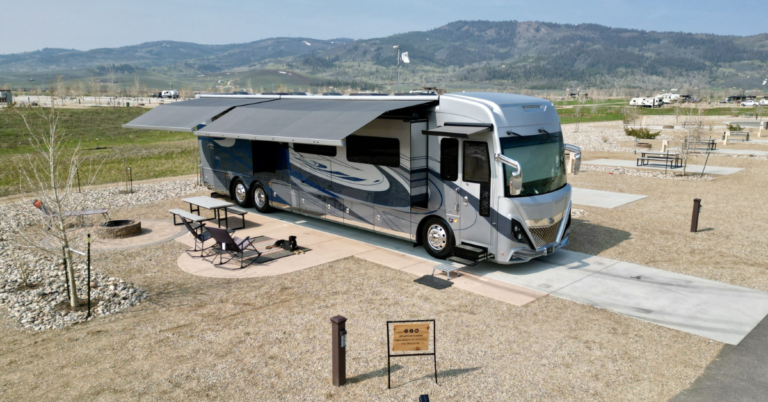The Ultimate Guide to Senior Living: Everything You Need to Know
The golden years of life can be incredibly rewarding. It offers a time of relaxation, leisure, and exploration.
However, with aging comes the need for new living arrangements that cater to evolving needs and lifestyles.
Understanding senior living options is crucial for making informed decisions. This will ensure comfort, safety, and happiness.
In this discussion, we will explore the various types of senior living options and provide a comprehensive guide to navigating the journey of senior years.
Let’s begin!
Types of Senior Living Options
There are several types of senior living options available, each varying in levels of care and services provided. These options include:
Independent Living Communities
Independent living communities, also known as retirement communities or senior apartments, are designed for active seniors who can take care of themselves but desire a maintenance-free lifestyle.
These communities offer a range of amenities such as:
- gyms
- swimming pools
- clubhouses
- organized social events
Take note that a senior community does not provide medical care or assistance with daily living activities.
Assisted Living Facilities
Assisted living facilities provide assistance with daily activities such as bathing, dressing, medication management, and housekeeping. They offer 24-hour staff support to ensure the safety and well-being of residents while promoting independence and autonomy.
Memory Care Communities
Memory care communities are tailored for seniors with Alzheimer’s disease or other forms of dementia. These facilities offer specialized care, including memory-enhancing activities and a secure environment to prevent wandering.
Nursing Homes
Nursing homes, also known as skilled nursing facilities, provide round-the-clock medical care for seniors with chronic illnesses or disabilities. They have trained healthcare professionals who can:
- administer medications
- assist with daily living tasks
- provide rehabilitation services
A nursing home may also offer short-term care for those recovering from surgery or illness.
Choosing the Right Community
When it comes to choosing the right senior living community, it’s essential to consider individual needs and preferences. It’s also crucial to:
- tour different facilities
- talk to staff and residents
- review contracts thoroughly before making a decision
Here are some factors to keep in mind when evaluating senior living options:
Location
Choose a community that is close to family and friends for easy visits. Consider the neighborhood and whether it offers convenient access to shopping, restaurants, and medical facilities.
Services and Amenities
Evaluate the services and amenities offered by each community to determine which ones align with personal needs and preferences. Some communities may have unique offerings such as on-site beauty salons, transportation services, or pet-friendly accommodations. If you expect a Catered Living arrangement, double-check if it is available.
Cost
Cost is a significant factor when considering senior living options. It’s essential to understand the fees associated with each facility, including:
- monthly rent or care fees
- additional charges for amenities and services
- any potential price increases in the future
Staffing
The quality of staff can greatly impact one’s experience in a senior living community. Be sure to inquire about the staff-to-resident ratio, staff qualifications and training, and the availability of medical professionals on-site.
Overall Atmosphere
The overall atmosphere of a senior living community is essential for residents’ well-being. Take note of the cleanliness, friendliness of staff and residents, and the general feeling of comfort and happiness in each facility.
Financial Planning for Senior Living
Senior living can be a significant expense, and it’s crucial to plan for these costs in advance. Here are some tips for managing the financial aspect of senior living:
Start Early
It’s never too early to start planning for senior living. The earlier you begin, the more options you will have and the better position you will be in financially.
Consider Different Payment Options
Most senior living communities offer different payment options such as:
- monthly rent
- entrance fees
- buy-ins
It’s essential to understand each option and consider which one works best for individual financial situations.
Look into Financial Assistance Programs
There are various financial assistance programs available for seniors who may need help covering the costs of senior living. These programs include Medicare, Medicaid, and veterans’ benefits.
Consult with a Financial Advisor
Consulting with a financial advisor can provide valuable insights into managing the costs of senior living. They can help create a budget, explore different savings options, and determine the best course of action for an individual’s financial situation.
Health and Medical Needs in Senior Living
As we age, our health and medical needs may change. It’s crucial to consider these needs when evaluating senior living options.
Here are some factors to keep in mind:
Level of Care Provided
Different communities offer varying levels of care, from independent living to skilled nursing. Consider current and potential future medical needs to ensure the chosen community can accommodate them.
Availability of Medical Services
Some senior living communities have on-site medical services. Others require residents to seek outside providers. Consider personal preferences and accessibility when evaluating this factor.
Coordination with Existing Healthcare Providers
For seniors with established relationships with healthcare providers, it’s essential to consider how a move to a senior living community may impact those relationships. Be sure to discuss this with your healthcare team and consider how the community can support continuity of care.
Transitioning to Senior Living
Moving to a senior living community can be a significant transition for both seniors and their families. Here are some tips for making the process smoother:
Involve Family Members
Discussing the decision to move with family members can provide emotional support and help make informed decisions. It can also make the transition easier for everyone involved.
Plan Ahead
It’s essential to plan the move well in advance and create a timeline for tasks such as:
- downsizing
- selling a home
- hiring a moving company
This can help reduce stress and ensure a smooth transition.
Get to Know the Community
Take advantage of opportunities to meet staff and residents, participate in activities, and explore the community before moving in. This can help make the adjustment period more comfortable.
Plan Your Senior Living Years Ahead
The decision to move to a senior living community is a significant one that requires careful consideration. Senior living can offer a fulfilling and enjoyable experience, and by following this guide, individuals can navigate this journey with ease.
Cheers to enjoying the golden years! So don’t wait until it’s too late – start planning your senior years now and make the most out of this special time in life.
Should you wish to explore more reads, head to our blog page. We’ve got more!






